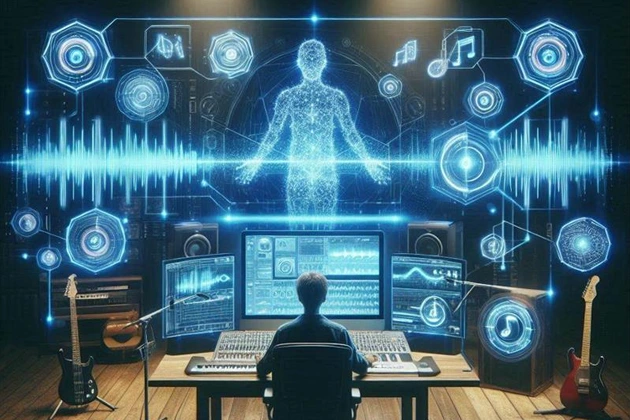Artificial Intelligence (AI) is revolutionizing the music industry, transforming how music is composed, produced, and consumed. From AI-generated melodies to smart recommendation systems, the latest breakthroughs in AI are reshaping the future of music creation and experience.
What Are the Breakthroughs in AI in Music?
AI in music involves using machine learning, neural networks, and data-driven models to create, analyze, and interact with music. These systems are capable of composing original songs, mastering audio tracks, and even emulating the style of legendary musicians. Let’s explore some of the most significant advancements.
Key Breakthroughs in AI and Music
AI-Generated Composition
Tools like AIVA, Amper Music, and MuseNet allow users to create original compositions using AI. These platforms can generate melodies, harmonies, and entire tracks in a variety of genres—from classical to EDM—enabling artists to experiment with new ideas effortlessly.
Voice Synthesis and Deepfake Vocals
AI-powered voice models can now synthesize human-like singing and speech. Tools such as OpenAI’s Jukebox and Vocaloid create realistic vocal performances, even in the voice of specific singers, offering endless creative possibilities for music production and experimentation.
Music Personalization and Recommendation
AI drives platforms like Spotify, Apple Music, and YouTube Music by analyzing listening habits to deliver personalized playlists and recommendations. These systems continuously learn user preferences, improving engagement and musical discovery.
Automated Mixing and Mastering
AI is streamlining music production with tools like LANDR and iZotope Ozone, which offer intelligent mixing and mastering services. These tools analyze tracks and automatically apply enhancements, helping independent artists produce professional-quality music.
AI in Live Performance
Musicians are integrating AI into live shows through real-time generative music and responsive visuals. AI can adapt to audience reactions or instrumental inputs, making each performance unique and interactive.
Music Restoration and Archiving
AI is also being used to restore old or degraded recordings by removing noise, correcting pitch, and enhancing sound quality. It plays a key role in preserving musical heritage by digitizing and improving access to historical recordings.
Challenges and Ethical Considerations
Despite its benefits, AI in music raises several concerns:
- Authenticity and Creativity: Can AI-generated music be considered truly creative? Many question whether music without human emotion can carry the same artistic value.
- Copyright and Ownership: When AI composes music, it’s unclear who holds the copyright—the programmer, the AI, or the end user?
- Impersonation Risks: Deepfake vocals can mimic famous artists, posing potential risks around impersonation and misuse of identity.
Conclusion
AI has made remarkable breakthroughs in the music world, offering innovative tools for composition, production, and personalization. While these advancements are expanding creative frontiers, they also challenge traditional notions of authorship, creativity, and ethics. As AI continues to evolve, striking a balance between technological innovation and artistic integrity will be key to shaping the future soundscape.



Leave feedback about this